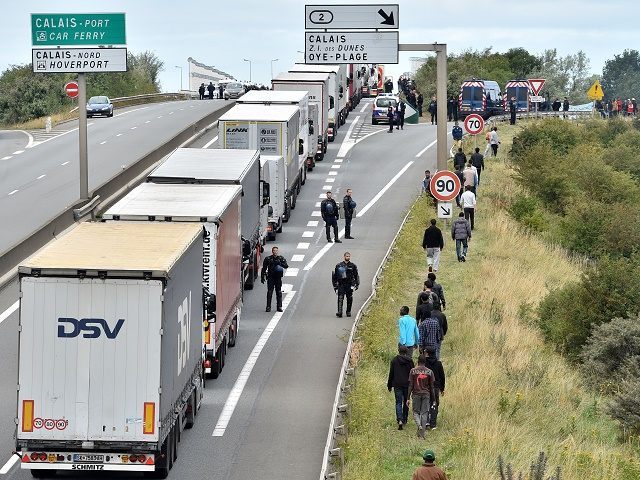Frustrated by the growing security in an around the port of Calais, migrants seeking to come to the UK are now moving to other French ports such as Dieppe and Ouistreham in a bid to thwart police checks.
Police are now arresting around 20 migrants a week at Ouistreham, a small fishing port best known for marking the easternmost point of Sword Beach, itself the most easterly of the five landing points targeted by the Allied invasion of France in June 1944. Prior to the introduction of tighter security measures in Calais over the summer, the average number of arrests in the town was just five a week, according to the Telegraph.
A police source said: “Some migrants come by train from Paris and contact people-traffickers who are active in the Ouistreham area.” Local people have reported that dozens of migrants have been spotted hiding in bushes and derelict buildings near the port.
21 year old Eritrean student Ibrahim said that smugglers had offered to put him in a lorry heading to England from Ouistreham in exchange for £1,500. He refused that time as he was concerned that he would suffocate in the small space. However, he said that the traffickers were highly organised “like the mafia.”
Romain Bail, the mayor of Ouistreham said: “Whenever security is tightened in Calais, you sense a wave of migrants coming here in the following weeks.” The town, located more than 200 miles from Calais has been dubbed “Little Calais”. Most of those picked up by police have been detained for questioning, with some ordered to leave France.
Back in Calais more than 5,000 migrants are still trying to board trains, lorries and vans making the crossing either by sea or via the Eurotunnel into England. 4,000 of those are camped in ‘The Jungle’, with more arriving daily.
Pakistanis have opened makeshift shops in the camp, selling food, drink, home-made cigarettes and even British SIM cards for mobile phones.
21-year-old Kurdish refugee Farhan, who travelled to Calais from Iraq, has been at the camp for two weeks. “It is getting too difficult (to cross). I have tried twice this week,” he said, adding that he believed Britain should accept Iraqi’s fleeing ISIS as well as Syrians.
In July Eurotunnel, which runs operations through the Channel tunnel, billed Paris and London €9.7 million for costs associated with security. Two thirds of that sum was to be spent on fencing and other security measures, while the remainder was to account for lost earnings thanks to forced closures as migrants broke onto tracks.
That bill came on top of a sum of $5 million, agreed by French and British officials last year to help Calais cope with security and the migrant crisis.
Following the deaths of two migrants on the tracks, a spokesman for Eurotunnel said: “Eurotunnel has spent €150 million in security in the past 15 years. All of it is targeted at making it harder for migrants to access our sites, and to make our sites safer for our customers. We have put up fences, adding extra lighting at night, cameras, infra-red detectors, extra staff. We have got more sniffer dogs, more controls on lorries entering the system, we have invested a huge amount of money in security”.
Nonetheless, migrants made a mockery of the millions spent over the next few weeks as one walked the entire length of the Eurotunnel into Britain as freight trains whizzed by mere inches away, and another group of men broke into the secure zone by simply guessing the security code on a locked gate by inspecting the keypad for worn keys.

COMMENTS
Please let us know if you're having issues with commenting.